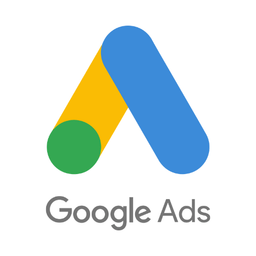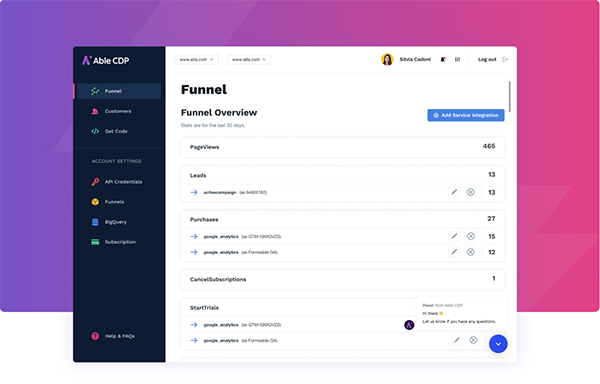Able tracks customers from their first website visit and associates UTM parameters, ad click IDs, and browser identifiers with customer details from lead and sign-up forms. It combines this data with server-side information to record conversions without relying on cookies and pixels. Able CDP's unique approach ensures that you have the most accurate and complete picture of your customers, allowing for better targeting and personalization of your marketing campaigns.
Client-side pixel tracking has long been a staple in monitoring user behavior and engagement on websites. However, it faces limitations due to privacy restrictions, cookie blocking, and user consent management. To address these challenges, we've developed a solution that incorporates server-side integrations, which captures key conversion data on the server-side, bypassing the limitations of browser-based tracking and providing a more reliable method for tracking user interactions and attributing conversions
The true innovation of Able CDP lies in its Conversions API integrations, which connect directly with ad platforms like Facebook Ads and Google Ads via server-to-server communication. This approach offers a comprehensive view of customer interactions, both online and offline, without relying on browser-based tracking or user consent.
Experience the future of data-driven marketing with Able CDP, a platform designed to deliver unparalleled insights and empower businesses to make informed decisions.








